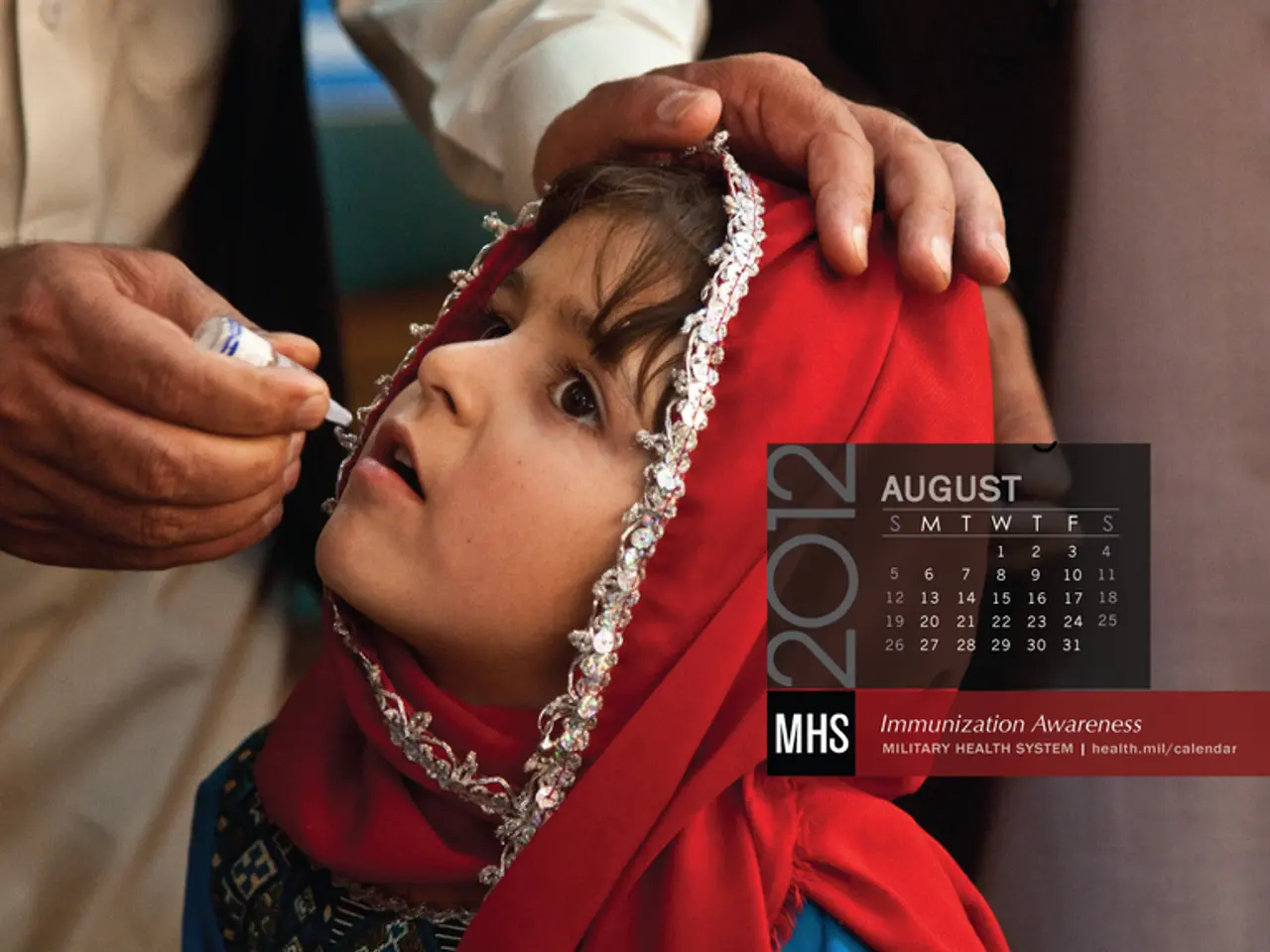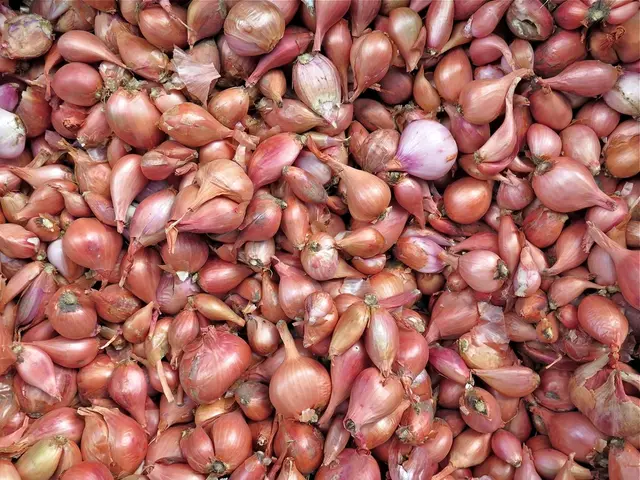Intense outbreaks of measles and typhoid fueling mass immunization efforts
In a bid to curb the rising cases of measles and typhoid outbreaks, particularly in urban slums and areas with limited access to clean water and proper sanitation, the Kenyan government has announced a nationwide integrated vaccination campaign. The campaign, scheduled from July 4 to July 13, 2025, aims to vaccinate millions of children across the country.
According to the World Health Organization (WHO), typhoid fever remains a significant public health concern in Kenya, with an estimated 126,000 cases and over 1,500 deaths annually. Measles outbreaks, on the other hand, have been reported in at least 23 counties, attributed to low uptake of the measles vaccine.
The campaign will target approximately 7.5 million children aged between 9 and 59 months for the Measles-Rubella (MR) vaccine. About 21 million children aged between 9 months and 14 years will receive the Typhoid Conjugate Vaccine (TCV). The vaccines for the campaign will be administered at Early Childhood Development (EDC) centres, primary and secondary schools, and health facilities nationwide.
The Ministry of Health, with the support of partners including UNICEF and the WHO, has written to respective ministries, including Interior, Education, Teachers Service Commission (TSC), and county governments, seeking support for the campaign. The Ministry of Interior is expected to help mobilise local leaders such as village elders, chiefs, religious leaders, and opinion leaders in support of the vaccination.
The campaign activities will be directly funded through UN agencies. Ahead of the campaign, county governments such as Turkana and Trans Nzoia have conducted capacity building and sensitization efforts for healthcare workers and the public, enhancing preparedness and awareness.
The campaign comes in response to an increase in unvaccinated children in Kenya, which has contributed to measles and typhoid outbreaks. These vaccine-preventable diseases remain leading causes of death among unvaccinated children, threatening their growth and development.
The campaign is being conducted against a background of global reduced fiscal space, with an emphasis on the utilisation of domestic resources and leveraging on existing activities. The vaccines will subsequently be incorporated into Kenya’s routine immunization schedule to sustain protection long-term.
In addition to vaccination, efforts include training healthcare workers, strengthening microplanning, and mobilizing community health strategies to ensure broad coverage. Additional preventive measures focus on improving water, sanitation, and hygiene practices to reduce typhoid transmission alongside vaccination.
The aim of this comprehensive strategy is to curb current outbreaks and prevent future epidemics through increased vaccine coverage and public health interventions. The campaign is expected to reduce morbidity and mortality rates linked to these diseases by increasing immunity in children.
- Amid rising cases of measles and typhoid, Kenyan politics emphasizes health solutions, particularly in underserved areas.
- The World Health Organization (WHO) emphasizes health concerns like typhoid fever and measles outbreaks in Kenya.
- Headlines in epaper might highlight the nationwide vaccination campaign against measles and typhoid in Kenya.
- Science and technology play crucial roles in the development of vaccines for managing chronic diseases like type-2 diabetes and chronic kidney disease.
- Workplace wellness programs might incorporate therapies and treatments for managing medical conditions like respiratory conditions, eye health, and mental health.
- Health and wellness iterate the importance of fitness and exercise in maintaining overall health, especially for managing skin conditions such as psoriasis.
- Climate change influences our environment and health; for example, it may exacerbate respiratory conditions.
- Renewable energy industry fosters sustainable living by reducing dependence on fossil fuels,which may positively impact environmental science and public health.
- Mental health is an essential aspect of overall wellness; it should not be overlooked in conversations about workplace wellness.
- Skin care is crucial for maintaining appearance and skin health, and it is often included in discussions surrounding lifestyle and outdoor living.
- Nutrition plays a vital role in achieving a balanced and healthy lifestyle; for example, it can help manage skin conditions like psoriasis.
- In discussions about entrepreneurship, business leaders might focus on environmental science and sustainability in their ventures, promoting renewable energy and reduced carbon footprint.
- Interior designers may consider the benefits of sustainable living when designing homes and offices, promoting energy efficiency and resource conservation.
- Leadership in the sector of diversity and inclusion fosters a more equitable workplace and society, where everyone has access to essential services such as health care.
- A healthy lifestyle encompasses more than just physical health; it includes mental and emotional wellbeing as well.
- Outdoor living can promote a sense of connection with nature and contribute to overall wellness, providing opportunities for physical activity and exposure to vitamin D.
- Investing in health-related industries like preventive care, nutrition, and mental health can lead to long-term personal financial success and increased wealth management.
- Wealth management strategies should prioritize home and garden upkeep, as housing-market trends indicate that well-maintained homes tend to hold their value better.
- Personal finance education is crucial for managing finances effectively, ensuring long-term prosperity and a secure retirement.
- In the realm of banking and insurance, innovative solutions might help consumers make informed decisions about their health care and financial wellbeing.
- The real-estate sector benefits from the implementation of smart technologies, increasing property value and enhancing daily living experiences.
- Gardening hobbies promote a sustainable living by growing organic food and reducing reliance on imported produce.
- Prioritizing technology adoption, from smartphones and gadgets to advancements in medical treatments, can further our understanding and management of skin conditions like psoriasis.








